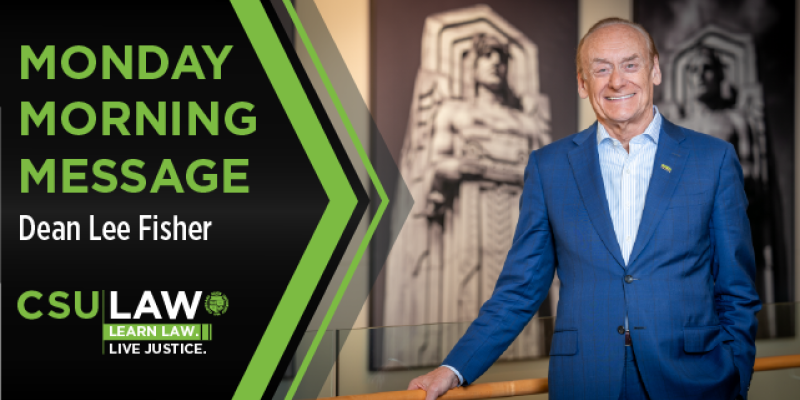
“I’m just trying to go home….Mom, Mom, Mom!” –Tyre Nicols
The video of Tyre Nichols' brutal killing at the hands of five Memphis police is horrifying. It was shocking to witness these officers, who are sworn to uphold the law, carry out such a flagrantly unjustified attack on Tyre Nicols after a traffic stop. The 29-year-old was attacked for three minutes while officers shouted profanities at him. As he was being beaten just 80 yards from his family home, he repeatedly called out for his mother.
We grieve with the Nichols family, and we offer our support to our students and other members of our Law School community who may be experiencing trauma as a result of this incident. I recognize that this has impacted our brothers and sisters of color in our law school community, especially our Black students, faculty members and staff in ways that those of us who are not Black or of color, cannot fully understand.
But we do know one thing. We are with you. We are committed to creating a community where all feel supported and valued.
We also know Tyre Nichols' death is not an isolated tragedy. Tamir Rice. George Floyd. Ahmaud Arbery. Breonna Taylor. Desmond Franklin. Sandra Bland. Freddie Gray. The list goes on and on.
They remind us that the law too often continues to be enforced and applied differently depending upon the color of one’s skin. This needless tragedy is an alarming illustration of the urgent need for effective training, oversight, and accountability for law enforcement.
When I served as Ohio Attorney General, I had the privilege of working closely with many brave, honest law enforcement officers who put their lives on the line every day. I learned that even the most well-intentioned officers may be influenced by the unconscious operation of implicit bias, which is why we enacted the requirement that all new Ohio police officers undergo 24 hours of cultural and racial sensitivity training. Ohio was the first state in the nation in 1993 to do so. It was a good first step, but clearly not enough.
All police personnel should receive ongoing training that conveys the message that the protection of human and civil rights is a central part of the police mission, not an obstacle to it. Policing is not just about implementing tested crime control approaches. It is also about effectively achieving fair and impartial policing.
I also served as a charter member of the Cleveland Community Police Commission for four years, and I know that while we have made progress, we have a long way to go to create a sense of trust between police and the communities they serve. We must find new creative ways for citizens and police to walk in each other’s shoes. If we begin to better understand and respect our common humanity, we will better understand why we need each other, as I wrote in a column in Cleveland Magazine’s Community Leader. Building a Culture of Trust.
Our law school is a founding member of the ABA Legal Education Police Practices Consortium, and some of our students have served as Police Practices Fellows, researching ways to improve police practices and re-imagining public safety in America. We are planning to host a forum at the law school about police reform later this semester.
Our mission, "Learn Law, Live Justice," is critical at a moment like this when the law has failed to protect the innocent and when justice demands accountability.
Throughout American history, we have seen that the law can be a source of oppression or a force for justice. It is up to us to ensure that the power of the law is used for justice.
We charge our students and each other to advocate for justice everywhere, to fight against injustice anywhere, and to help heal our nation.
Stay safe. Stay healthy. Stay Committed to Living Justice.
Have a great day. Have a great week.
My best,
Lee
Lee Fisher
Dean, Cleveland State University College of Law | Cleveland State University
Joseph C. Hostetler-BakerHostetler Chair in Law
For copies of past messages, please go to this link: Monday Morning Messages.
